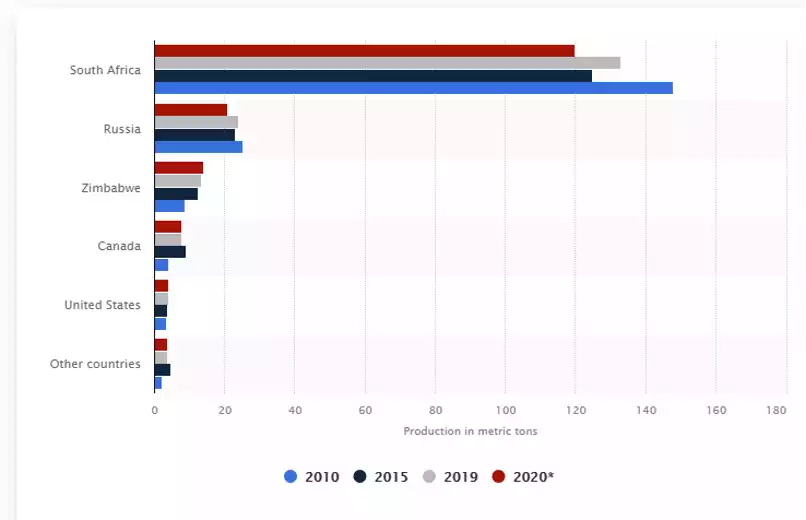Why Ainslie Crypto Storage?
News
|
Posted 20/07/2021
|
7397
Bitcoin users have misplaced about 20% of all existing BTC, and unlike fiat currency which can potentially be recovered, it's highly unlikely that these tokens will be returned to circulation. Ever. How can you ensure that you don’t become one of these unfortunate individuals?
All cryptos (currencies and tokens) are stored in wallets. A wallet is simply a pairing of two uniquely generated, cryptographically linked keys that give you access to your digital assets. The two keys that make up each wallet are a Private (or secret/withdrawal) key and a Public (or share/deposit) key. These keys facilitate and secure each crypto transaction.
A hot wallet is any wallet that has been exposed to a device that has been connected to the internet, meaning that potentially your private key could be compromised if your device is not completely secure.
A cold wallet, on the other hand, has no online footprint. This can be in the form of a “paper wallet” that was generated completely offline or a hardware wallet where the private key is secured by a physical device that can only be accessed by the owner.
Wallets that are stored online by a third party, often an exchange, can be the most convenient for short-term traders looking to make quick buys/sells. However, most large hacking incidents where significant funds have been stolen have occurred on exchanges.
A cold wallet is generally seen as a highly secure way of storing digital assets. However, if the wallet owner loses his or her access key, that wallet would be permanently inaccessible, along with the crypto it contains.
As stated above, Bitcoin users have misplaced about 20% of all existing BTC and it's highly unlikely they will ever be returned to circulation. The reason for this has to do with the structure of cryptocurrencies and the emphasis they place on privacy and security. While the loss of 20% of all bitcoin is likely to not have a significant impact on the crypto market itself, it absolutely affects individual investors. Although it's impossible to say exactly how much Bitcoin has been directly lost as a result of negligence or plain misfortune, it is likely to be in the tens of thousands at the very least.
If you take a relaxed approach and consider any Bitcoin that hasn't moved for more than five years to be lost, then around 20% of all Bitcoin fits into this category. According to a June 2020 report by blockchain analytics firm Chainalysis, around 3.7 million BTC hasn't been touched for at least half a decade—that's around $40.6 billion worth of Bitcoin that might never be moved again. Crypto data firm Glassnode estimates that about 3 million Bitcoin are lost forever.
Those figures don't even include BTC that has been stolen in exchange hacks. Cryptocurrency exchanges come and go, and it's almost inevitable that an exchange will get hacked at one point or another. While cryptocurrencies themselves are very secure, exchanges can be affected by a variety of vulnerabilities, making them a prime target for hackers
As it stands, 2019 saw a record number of twelve crypto exchanges being hacked. In total, $292,665,886 worth of cryptocurrency and 510,000 user logins were stolen from crypto exchanges in just 2019.
One would think that as time goes on cryptocurrency exchanges would become more secure. The unfortunate reality is that more exchanges are hacked every year. As cryptocurrency and exchanges remain largely unregulated, it is unclear as to who has jurisdiction over cryptocurrency markets. To name a few (of many) hacks over the years;
- August 2016 – Bitfinex – 120,000 BTC
- December 2018 – QuadrigaCX – 26,350 BTC
- May 2019 – Binance – 7,000 BTC
- February 2020 – Altsbit – 6,929 BTC, 23,210 ETH

So what is the solution to ensure that you never lose your crypto investment? Easy, an Ainslie Storage Account. The main utility of an Ainslie Storage Account lies in the safeguarding of cryptocurrency assets.
Losing physical wallets (either paper or hardware equipment) is a real possibility, and in those cases recovery of the cryptocurrency holdings is impossible. For individual holders of crypto, the possibility of losing private keys represents a significant risk.
Additionally, hardware wallets (which are not strictly cold as you ‘plug them in’ to the internet) can be a confusing beast to use for many people and are subject to phishing hacks and the same misplacement of the ‘seed words’ issue as losing your cold wallet.
With an Ainslie Storage Account, you can enjoy the same potentially exponential crypto gains without the anxiety of losing your capital.
Ainslie can help you with securely storing your crypto and takes all the 'scariness' out by allowing you to deal directly with a human consultant, ask any questions, conduct high-value trades live and have us look after the storage for you in a secure, fully allocated and completely 'cold' (unhackable) Ainslie Storage Account.
With Ainslie, you buy the crypto and it is securely held in Reserve Vault on a unique cold offline wallet with no annual fees. We make it impossible for you to lose your hard-earned money and keep things easy for tax time. Additionally, we are SMSF compliant, again making things as easy as possible for you
If you’re interested in an Ainslie crypto storage account you can call us if you would like to discuss how we can make an Ainslie Storage Account work for you – whether that be your first crypto investment, or securing your existing crypto bags.
As this crypto market correction starts to show signs of bottoming it is the perfect time to properly assess your options on how to ride the next exponential run.